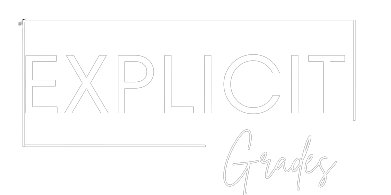In today’s fast-paced educational landscape, learners and educators alike are constantly exploring new avenues for effective and efficient learning.
One such avenue that has garnered significant attention is Sophia Learning. This innovative platform has sparked curiosity and questions, particularly regarding its approach to testing and coursework.
Among these inquiries, a prevalent one stands out: “Is Sophia Learning Open Book?” This question touches the core of how Sophia Learning structures its learning environment.
In this exploration, we delve into the intricacies of Sophia Learning, shedding light on its methods without directly unraveling the answer just yet. Stay tuned as we navigate through this educational journey.
Are Sophia learning milestones open book?
Yes, Sophia Learning milestones are generally open book, allowing students to access resources while completing their assessments.
This approach reflects Sophia’s educational philosophy, which emphasizes the application of knowledge over rote memorization.
Also see: How to get sophia learning answers
By enabling access to course materials, notes, and online resources during exams, Sophia Learning aligns with the modern educational trend that values understanding and practical application.
This open book policy facilitates a learning environment where students are encouraged to think critically and apply concepts, rather than merely recalling information.
It recognizes the reality of the digital age, where information is readily available, and the skill lies in how one uses that information effectively.
Moreover, this approach reduces exam pressure, allowing learners to demonstrate their comprehension and analytical skills in a more realistic setting.
Sophia Learning’s strategy is designed to prepare students for real-world scenarios, mirroring professional environments where problem-solving and resourcefulness are key.
This open book policy, therefore, is not just about easing the testing process; it’s about instilling a deeper level of understanding and fostering a more engaging and practical learning experience.
Understanding Sophia Leaning ‘Open Book’ Concept
In the realm of education, the term ‘open book’ often conjures up images of students consulting their textbooks during an exam.
However, when it comes to Sophia Learning, this concept takes on a slightly different meaning.
Sophia, known for its innovative approach to online education, redefines traditional educational norms, including the idea of open book assessments.
At its core, an open book approach in the context of Sophia Learning implies a focus on understanding and application over memorization.
This method acknowledges that in the real world, professionals are not restricted from accessing information. Instead, they are evaluated on how effectively they can utilize available resources to solve problems.
Hence, Sophia’s open book philosophy may not simply mean having a textbook at hand during a test. It’s more about encouraging learners to engage with materials, think critically, and apply knowledge in practical scenarios.
This philosophy aligns well with Sophia’s broader educational approach, which emphasizes flexibility, self-paced learning, and the development of practical skills.
By adopting an open book stance, Sophia Learning aims to foster a more authentic and meaningful learning experience, preparing learners not just for tests, but for real-world challenges.
In summary, ‘open book’ in the context of Sophia Learning extends beyond the literal sense. It encapsulates a progressive educational ethos that prioritizes understanding, application, and real-world readiness.
Is using the sophia learning open book concept cheating?
No, utilizing the open book concept in Sophia Learning is not considered cheating; it’s a deliberate educational strategy.
This approach is designed to mirror real-world scenarios where individuals have access to information and must apply it effectively.
The open book method at Sophia Learning is grounded in the philosophy that learning should be about understanding and applying knowledge, not just memorizing facts.
By allowing students to refer to resources during assessments, Sophia Learning encourages a deeper engagement with the material.
This method fosters critical thinking and problem-solving skills, as students are not just tested on what they can remember, but on how they can use the information in practical situations.
It shifts the focus from simple recall to a more comprehensive understanding and application of concepts.
Furthermore, this strategy prepares students for professional environments where success is often determined by one’s ability to navigate resources and apply knowledge effectively. In such environments, having information at one’s fingertips is not cheating but a necessary skill.
Sophia Learning’s open book concept is thus an innovative approach to education, aligning academic assessments more closely with real-world demands and expectations.
Conclusion
In conclusion, Sophia Learning’s open book approach represents a progressive stride in the educational landscape.
It’s a method that values understanding, practical application, and critical thinking over mere memorization.
This approach is not only aligned with modern educational trends but also prepares learners for real-world challenges where information accessibility and application are key.
By embracing this methodology, Sophia Learning is redefining the traditional boundaries of education, offering a more authentic, engaging, and practical learning experience.
This innovative strategy underscores the evolving nature of learning and assessment in the digital era, setting a new standard for academic success.

